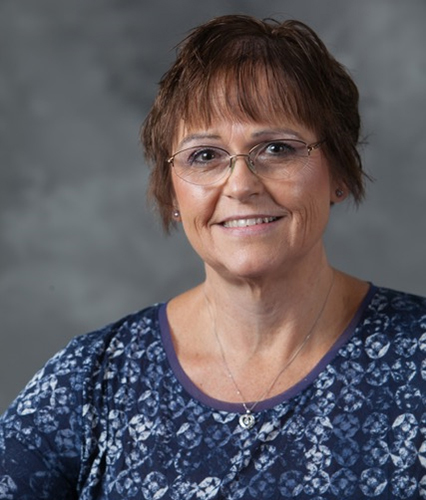
By Diane Oldfather, MHEd, RRT, FAARC

When I attended my first Missouri Society for Respiratory Care annual conference as a student in 1993, I was starstruck by several individuals that oversaw (and appeared to flawlessly run) several of the activities. One individual was greatly involved in many aspects of the program: sputum bowl chair, John Roger’s Memorial Scholarship chair, program committee chair, and a great hostess. I vividly recall wanting to be like her ‘when I grow up.’ Yes, patient care was the most important reason I was getting into healthcare, but I felt a calling to do more for the profession that I had chosen. The conundrum, what did I have to offer and how did I get to such a place of honor?
Forging a career path
Before graduation I landed my first job at one of the clinic sites I had rotated through, and immediately immersed myself in the expected role for which I had trained. My instructors had more than adequately imparted knowledge and ample opportunity to perform the needed skills to make a difference in the lives of my patients, but they had also provided a mindset to make myself as valuable as possible.
I was often reminded that respiratory was the “Mikey” in medicine and would rapidly jump on new roles to include in their scope of practice to create the perception our profession was invaluable. Therefore, it is imperative to be willing to cross-train into as many areas of respiratory care as possible to secure your value in the organization. To me this was a challenge, but my inquisitive nature and a suppressed personal goal is what I believe caused me to excel.
Within the first year of employment I was working with students as a clinical instructor, volunteering to participate in training sessions and on committees, and pursuing higher degrees and credentials. Within three years, I was notified that the director of clinical education from the program I had graduated from was coming to work full-time where I was employed, and I was encouraged to apply for the DCE position.
Build your skills
I know, this is supposed to be an article on leadership. So where am I going with all this information?
Change in any capacity requires preparation. Taking on those unexpected challenging tasks that typically are deemed ‘that is not my job,’ performing ‘the other duties as assigned,’ and participation in extra committees or projects are opportunities that prepare us for leadership roles and can bring us full circle to earlier ambitions. The career change from a clinical role to education allowed me to remain involved with patient care; extended an opportunity for me to become more intimately involved with our profession; and required me to fill a role that would encourage students to excel to their greatest leadership potential.
It was a great honor to be able to teach with one of my original mentors Jerry Joiner, BS, RRT; my program director and teacher, a published author, an MSRC president, and activist to get licensure in Missouri.
My new position required me to become more active with our state society, and guess who was still there? Yes, my idol from 1993, Donna Wemhoff, BS, RRT! She actively mentored me to fill all the positions I had witnessed her performing during my first MSRC conference and challenged me to do more than follow in her footsteps; I was entrusted to serve in many elected positions, assigned to various committees, and have assisted in essential profession and career advancement activities in the past 22 years.
I have had the privilege serve the MSRC with great leaders that not only helped me refine my leadership skills but are also well known by the AARC: Bill Lamb, BS, RRT, FAARC, Dana Evans, MHA, RRT, RRT-NPS, Shawna Strickland, PhD, RRT, RRT-NPS, RRT-ACCS, AE-C, FAARC, Brent Kenney, BSRT, RRT, FAARC, Sherry Whiteman, MS, RRT, Tony DeWitt, JD, RRT, FAARC, and Cheryl Hoerr, MBA, RRT, FAARC. Activity at the state level had afforded me the opportunity to serve on the National Sputum Bowl Committee, speak at numerous AARC Congress and Summer Forum events, serve on AARC Ad Hoc Committee for Career Pathways, and the honor of induction as a Fellow of the AARC.
Seek leadership opportunities
So, how can you get into a leadership role?
Start in your workplace by volunteering to share your skills for the advancement of better patient care. Become active in your state society through service. Attend state and national conferences and introduce yourself to leaders; getting your name out there gets you recognized as a someone willing to work as part of the team.
If you are a leader how do you mentor others?
Take the time to get to know them so you can better identify their talents and fit them into a role where they can excel.
Lessons learned
In summation, I have learned a diverse team is a strong team; everyone has something unique and important to bring to the table; do not be afraid to ask why or why not; relationships are important; you can teach this old dog new tricks; when you dream it is okay to dream big; and when you are actively involved with a process you take ownership, have buy in, and create a better chance to succeed.
Regardless if you consider yourself a leader or a follower, all RTs are leaders in patient care and should take pride in not only preserving, but also advancing our profession to recognition as a vital team in the healthcare industry.
Diane Oldfather MHEd, RRT, FAARC has been an AARC member since student status in 1992. She began her career as a clinician, served as an educator for 20 years, and has now returned to a part-time clinical role. She still actively serves on the MSRC Board of Directors; oversees and mentors MSRC Student Liaisons; is a CoARC Site Visitor; and actively serves the AARC as an author in AARC University, through committee appointments, and lectures at conferences.
Strengthen Your Leadership Skills
Email newsroom@aarc.org with questions or comments, we’d love to hear from you.
















